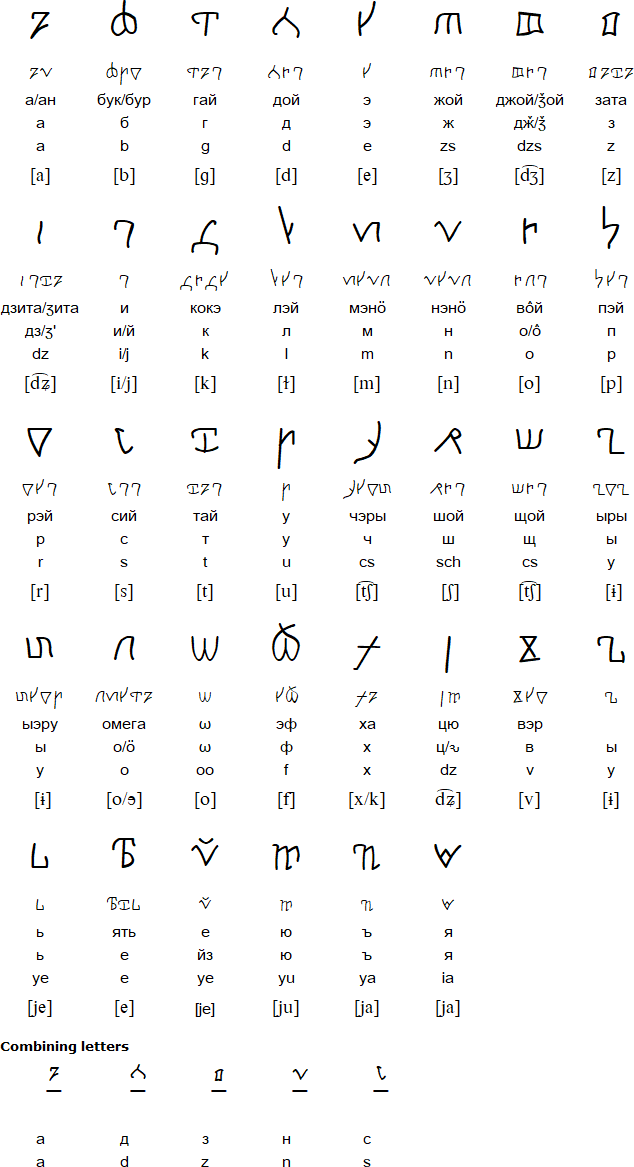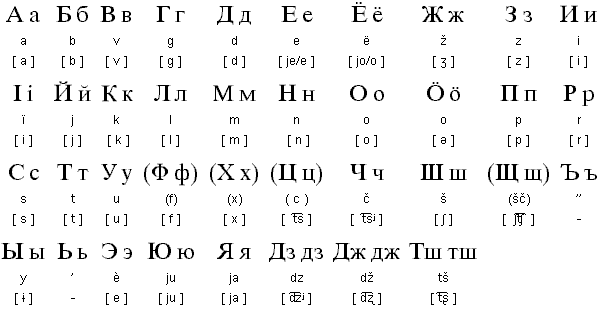Origin
The Old Permic or Abur alphabet was created in the 14th century by the Russian missionary Stepan Khrap (1373- 1395), who become St Stephen of Perm. It was modelled on the Greek and Cyrillic alphabets, but many of the letters resemble the Komi religious "Tamga signs". The alphabet was used for about 300 years until the 17th century.Used to write:
Komi (Коми), which is also known as Zyrian, or Komi-Zyrian, is spoken by about 350,000 people mainly in the Komi Republic (Коми Республика) in the northeast of European Russia. There are also some Komi speakers in Perm. It is a member of the Permic subgroup, along with Udmurt, of the Uralic language family.There are two main dialects of Komi: Komi-Zyrian, which is spoken in the Komi Republic and is the basis for the written language; and Komi-Yazva or Komi-Permyak, which is spoken by a small number of people in Perm and the south of the Komi Republic.
Komi was written with the Old Permic or Abur alphabet from the 14th century to the 16th century, when the Cyrillic alphabet was adapted to write the language. During the 1930s and 1940s Komi was written with a version of the Latin alphabet, then the Cyrillic alphabet made a come back.
Old Permic (Abur) alphabet

The images on this page are based on fonts created by Micheal Everson (www.evertype.com)
Cyrillic alphabet for Komi

Sample text in Komi-Permyak (Lord's Prayer)

http://www.language-museum.com/encyclopedia/k/komi-permyak.php
Sample text in Komi-Zyrian

Translation
In the beginning was the Word, and the Word was with God, and the Word was God. The same was in the beginning with God. All things were made by him, and without him was not any thing made that was made. In him was life, and the life was the light of men. And the light shineth in darkness, and the darkness comprehended it not. There was a man sent from God, whose name was John.John, 1: 1-6
http://www.language-museum.com/encyclopedia/k/komi-zyrian.php
Links
Introduction to Old Permic writing and the Komi language (in Russian)http://www.peoples.org.ru/abur.html
Information about the Komi language and people (in English)
http://en.wikipedia.org/wiki/Komi_language
Information about the Komi Republic (in Russian)
http://www.rkomi.ru/
No comments:
Post a Comment
Note: Only a member of this blog may post a comment.